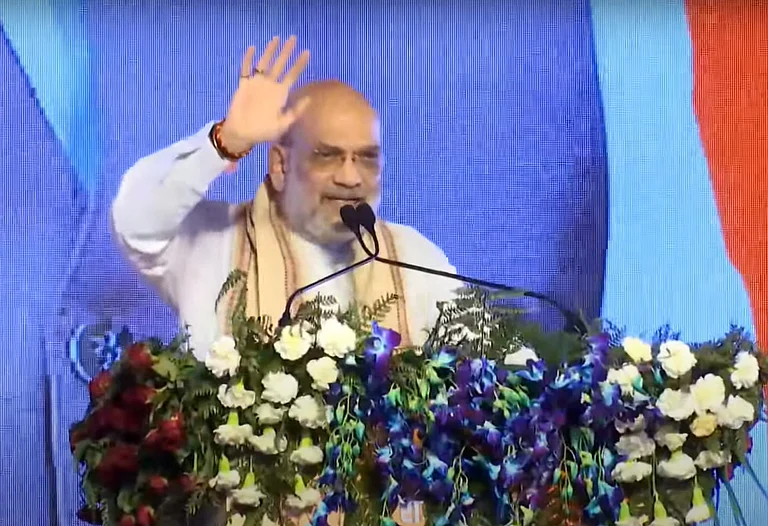Defence Minister Rajnath Singh on Tuesday rejected China's attempts' to rename places in Arunachal Pradesh and wondered if provinces in that country would become part of India if it changes their names.
Beijing declared Chinese names for an additional 30 locations in Arunachal Pradesh, a region that China considers as part of southern Tibet, last month which India criticized as 'senseless'.
In an address at a public rally, Singh also asserted that if someone tries to hurt India's honour and self-respect, then the country now has the capability to respond to it, remarks that came amid the lingering eastern Ladakh border row.
"China has changed the names of 30 places in Arunachal Pradesh and posted it on its website. Sisters and brothers, nothing will happen by changing the names," the defence minister said.
"I want to tell my neighbour that if tomorrow we change the names of some states in some parts of of China, will those states of China become ours by changing the names?," he asked.
Singh said China should not remain in the misconception that they can lay claim over Arunachal Pradesh by changing the names of the places in the state.
"I believe that such actions will spoil the relations between India and China. In our country, Atal Bihari Vajpayee ji used to say that we should always keep in mind that friends change in life but neighbours do not change," he said.
"India's thinking is that we want to maintain good relations with all our neighbours. We want to maintain cordial relations. But sisters and brothers, if someone tries to hurt India's honour, pride and self-respect, it is natural, today India has the capacity to respond to it," Singh said.
The defence minister also lauded the people of Arunachal Pradesh and described them as "strategic assets".
"That's why we have a special feeling of love and respect in our hearts towards all of you. And whenever there was a war with China, the whole of India can never forget the role you played," he Singh said.
"My sisters and brothers, India will always be indebted to you. This is home for all of us," Singh said.
Amit Shah on Chinese encroachment reports
Asserting that China couldn't encroach a "single inch" of land under the Narendra Modi government, Home Minister Amit Shah on Tuesday claimed that people will never forget how former PM Jawaharlal Nehru said "bye-bye" to Assam and Arunachal Pradesh during the 1962 Chinese aggression.
Addressing an election rally in Lakhimpur, he said the BJP-led government at the Centre secured the country's border with Bangladesh and stopped infiltration.
"During the Chinese aggression of 1962, Nehru had said 'bye-bye' to Assam and Arunachal Pradesh. People of these states can never forget that," Shah said.
"But now, China could not encroach even a single inch of our land. Even in Doklam, we pushed them back," he added.
What did China do?
The Chinese Ministry of Civil Affairs released the fourth list of standardised geographical names in Zangnan, the Chinese name for Arunachal Pradesh which Beijing claims as part of south Tibet, state-run Global Times reported on March 31.
In April last year too, India had reacted sharply when Beijing released the third list of standardised names of 11 places in Arunachal Pradesh.
The first batch of the standardised names of six places in Arunachal Pradesh was released in 2017 while the second batch of 15 places was issued in 2021.
Indo-Chinese ties
The ties between India and China came under severe strain following the eastern Ladakh border row that began in May, 2020.
The Indian and Chinese troops are locked in an over three-year confrontation in certain friction points in eastern Ladakh even as the two sides completed disengagement from several areas following extensive diplomatic and military talks.
India has been consistently maintaining that peace and tranquillity along the LAC were key for normalisation of overall ties.

























